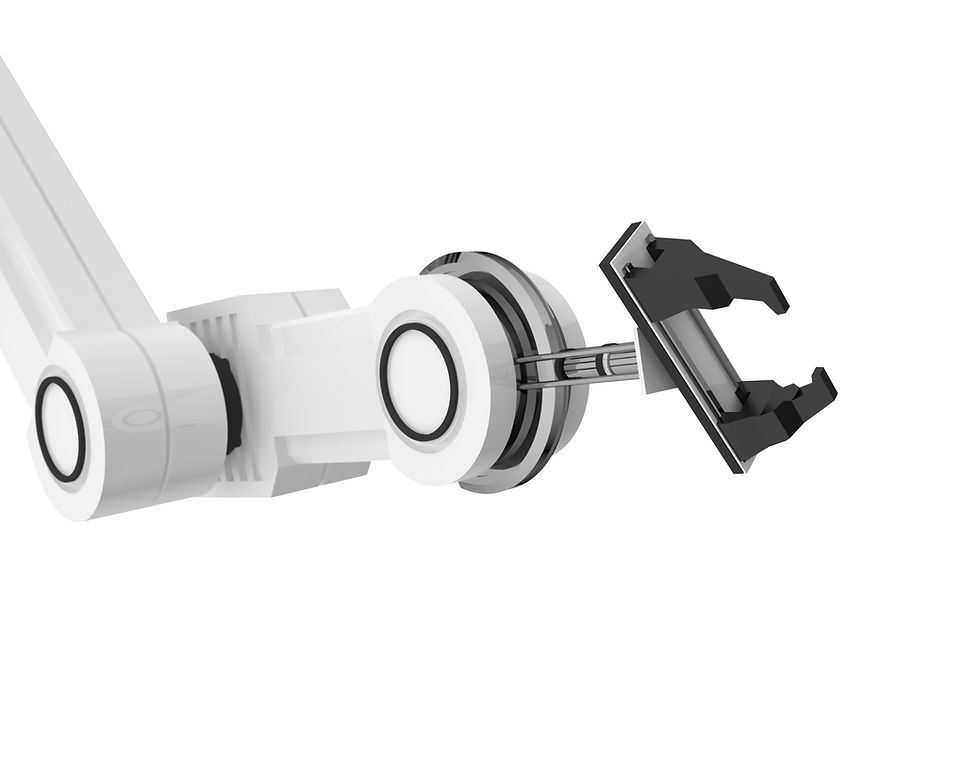Robot Chef
- Chetana Karla Shakti
- May 2, 2024
- 2 min read
In an era marked by technological innovation, the boundaries between science fiction and reality continue to blur. One such groundbreaking advancement lies in the realm of culinary arts, where researchers are on the brink of revolutionizing meal preparation through the creation of automated robot chefs. A recent article delves into this fascinating topic, shedding light on the pioneering research conducted by Grzegorz Sochacki from the University of Cambridge. His work focuses on developing a robot chef capable of not only cooking but also analyzing the taste and adjusting flavors—an endeavor that could redefine the way we approach food in our daily lives.
We'll explore the motivations behind Sochacki's research, the challenges encountered in implementing artificial intelligence in culinary processes, and the potential applications of this novel technology. Additionally, we'll pose thought-provoking questions that delve into the implications of automated robot chefs on households, the food industry, and society as a whole. Join us on this journey into the future of meal preparation, where convenience meets innovation, and cooking becomes as effortless as brewing a cup of coffee at the supermarket.
Taste focused Technology: https://www.azorobotics.com/Article.aspx?ArticleID=551
Ayurveda & Technology : https://fastercapital.com/content/Ayurvedic-Technology-and-Automation-Revolutionizing-Ayurveda--How-Technology-is-Transforming-Traditional-Healing.html
Discussion:
think the introduction of automated robotic chefs, akin to coffee machines at supermarkets, could revolutionize meal preparation for busy households?
Considering the convenience factor, do you believe that automated robot chefs could encourage more people to cook at home rather than opting for takeout or pre-packaged meals?
What are some potential challenges or concerns that might arise with the widespread adoption of automated robot chefs in home kitchens?
In what ways do you think automated robot chefs could contribute to healthier eating habits among consumers, especially in comparison to fast food or processed meals?
How might the affordability and accessibility of automated robot chefs impact the food industry, particularly in terms of restaurant operations and meal delivery services?
Do you think there is a market for automated robot chefs in non-traditional settings, such as office break rooms or college campuses?
How could advancements in artificial intelligence and machine learning further enhance the capabilities of automated robot chefs in terms of recipe customization and dietary preferences?
What are your thoughts on the potential environmental impact of automated robot chefs, particularly in terms of food waste reduction and energy efficiency?
Considering the social aspect of cooking and dining, how might automated robot chefs affect the way families and friends interact during meal times?
Do you foresee any ethical considerations or cultural implications associated with the integration of automated robot chefs into everyday life?
Background Information:
Raw Ingredients that have salt:
Apples, guavas, avocado, papaya, mango, carambola, pineapple, banana, melons, and pears contain natural sodium ranging between 1-8 mg per 100 grams. Celery, spinach, carrots and beets are vegetables that are rich in sodium.




Comments